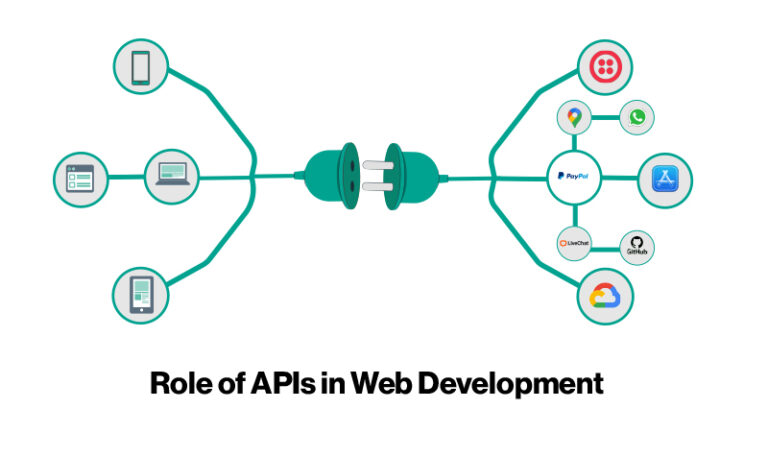APIs, also known as Application Programming Interfaces, have become indispensable components of contemporary web development. They facilitate the interaction between web applications and other systems, allowing for the exchange of data and enhancing user experiences. Here are several pivotal roles that APIs fulfill in modern web development:

1. Integration
APIs empower web applications to seamlessly integrate with diverse applications, systems, and services. For instance, a weather application might utilize an API to access weather data from an external service.
2. Scalability
APIs contribute to enhancing the scalability of web applications by distributing processing tasks across multiple systems. This helps prevent bottlenecks and ensures optimal performance even under heavy loads.
3. Flexibility
APIs offer the flexibility to expose application functionality to third-party developers or to create bespoke integration. This capability extends the application’s functionality and broadens its accessibility.
4. Security
APIs can be fortified with various authentication and encryption mechanisms to ensure the secure transmission of data. This safeguards sensitive information and restricts access to authorized parties only.
5. Innovation
APIs empower developers to innovate by leveraging existing functionalities and data sources to create novel applications and services. This fosters a culture of innovation and drives the development of cutting-edge products and solutions.
In summary, APIs play a pivotal role in modern web development by enabling integration, scalability, flexibility, security, and innovation. By harnessing the power of APIs, developers can craft robust, scalable, and innovative web applications that offer enriched user experiences.